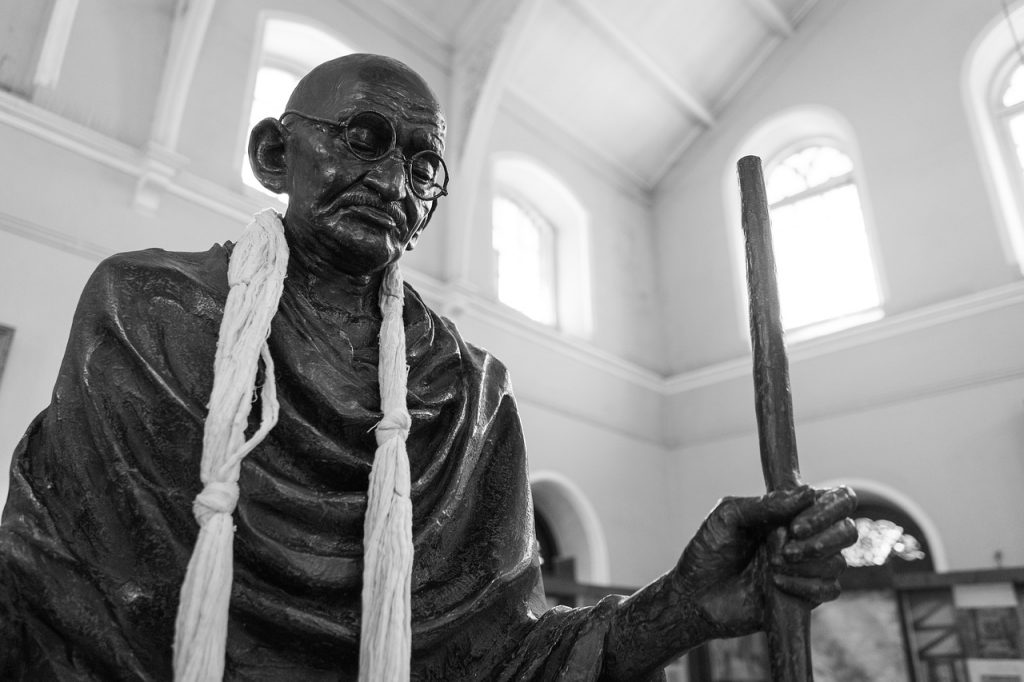07 Aug 2019 | Interviews
Fight, non violence
Teresa – What is the importance of Mahatma Gandhi in the context of the construction of peace?
João Roberto – Mahatma Gandhi believed in simple things like love your neighbor as you love yourself, which is a proverb responsible for significant changes in the human trajectory. The history of the independence of India, which lived under the domination of the British Empire, became a reality thanks to the leadership of this great pacifist. For him, the work was more important than the laws, because there are unfair laws and also unfair men.
His fight consisted of a courageous civil resistance, which left many leaders confused at the time. He stated that “they will seize our possessions. But they cannot take away our self-respect.” He was never disposed to kill. His “weapon” was the word and, in the defense of his people, he asked the Indians who fought never to use violence. Fasting and prayer were also part of his display of solidarity. He fasted with the purpose of being equal to the hungry of his country and also as a form of protest. He was a coherent man who harmonized action and thought. “Be the change that you wish to see in the world,” he stated. He would not obey those who did not act in accordance with justice. Speaking to people as victims of racial discrimination, he said: “We will not strike a blow, but we will receive them; and through our pain, we will make them see their injustice. And it will hurt, as all fighting hurts. But we cannot lose. They may torture my body, break my bones, and even kill me. Then they will have my dead body, but not my obedience.” His bravery touched thousands of Indians, and also moved the world.
[Gandhi and the Salt March]
One of the strategies used by Gandhi, which had a positive result in the fight for independence of the Indian people, was the walk of nearly 400 km, contesting the monopoly of the English in the production of salt. The Salt March was a challenging action and one of insubordination to the English regulation that required the payment of a tax on salt. In this regard, he declared: “Salt in this climate is a necessity of life, like air and water. He needs it for himself, his cattle and his land. This monopoly will go, the instant we get independence. Then why not abolish it today?” He also wove his own robes and directed his brothers to do the same, following the principle of non-cooperation with injustice. He highlighted the concept of Ahimsa, non-violence, the greatest foundation in the construction of the culture of peace.
João Roberto de Araújo is an author of social and emotional education books and founder of 50-50 SEL Solutions.







